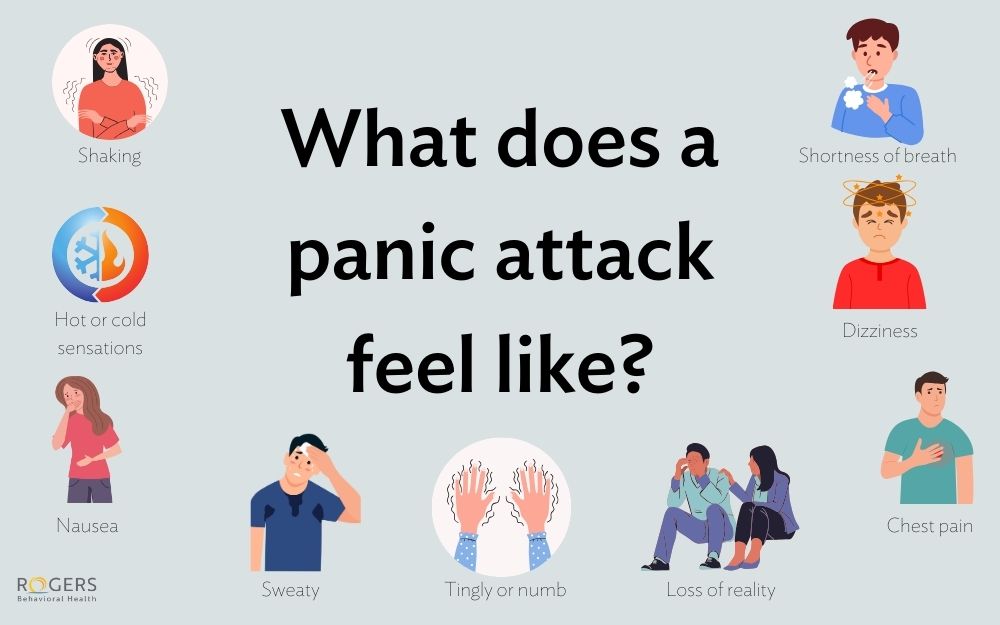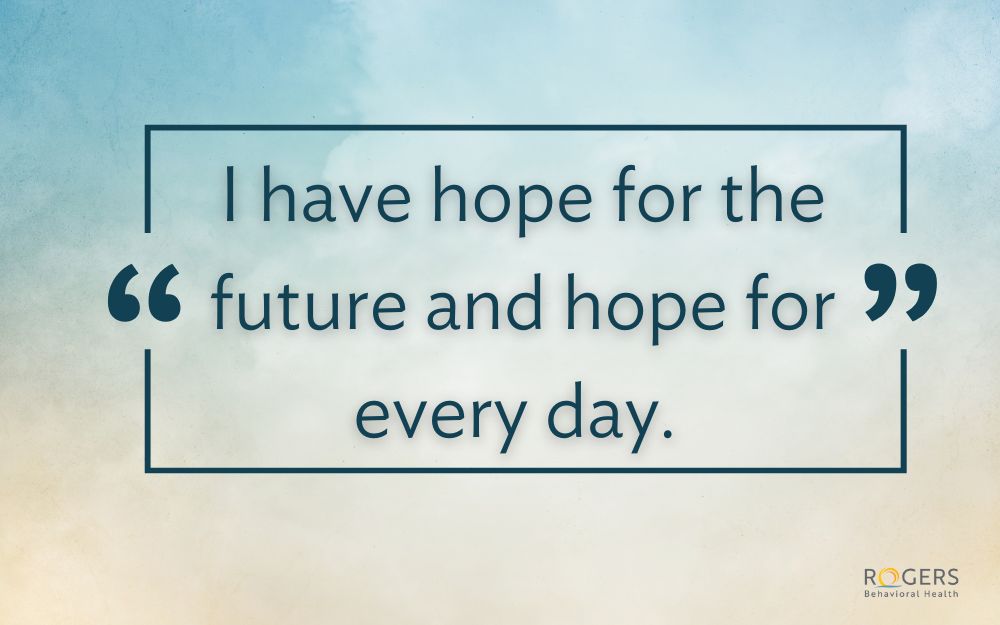Hannah's story
Posted on 06/09/23 12:07:pm
Share this article:
I was at rock bottom when I went to Rogers. I attempted suicide and was inpatient for ten days, then I was transferred to a trauma-focused program in Chicago for a couple of months. I wasn’t making progress and they told me they couldn’t help me anymore. They said I needed to go to a higher level of care, which was residential treatment. I was so angry, but I probably would have ended up dead if I hadn’t gone due to the behaviors I was engaging in. I was plummeting quickly.
They called Rogers and intake called me three times because I wouldn’t answer. I didn’t want to go. I didn’t know what it would be like. I was leery because other programs told me my trauma was too significant for them to help me.
When I got to Rogers, it was the first time someone asked me how I felt about having flashbacks and my life getting so small. I had never been asked that before. I wasn’t leaving my house, I wasn’t getting out of bed, I wouldn’t shower, and I didn’t want to go into the bathroom because that’s where the shower was. My past abuse happened in the shower. I was convinced I was never going to shower again. I was having nightmares and I lost a significant amount of weight in a short amount of time.
Rogers treated me like a human. Even if I was in my room for more than 30 minutes someone would check on me. They understood everyone there has gone through so much and they really showed everyone a lot of respect.
They did a lot of work with exposure and response therapy, and by the end of my treatment, I was taking showers without someone standing outside the bathroom door making sure I was safe. I wasn’t having flashbacks and I’d gotten to the point where I could take showers at night and I didn’t even think about it.
They really gave me my life back. They helped me with my family dynamics including my marriage, which was on the brink of ending.
Rogers taught me PTSD is a chronic illness – sometimes things are great, sometimes they’re not – and when things come up with my PTSD it doesn’t mean I need to abandon ship and everything is going to tank.
I’m also grateful to the Rogers Behavioral Health Foundation for providing a patient care grant which allowed me to continue treatment when my insurance refused to pay.
Today I make sure I’m doing all different kinds of activities that I love. I’m in an exercise class and I’m part of a soccer team. The exposure and response work continues to really help me check the facts of the situation and understand when it’s my trauma brain imposing black-and-white thinking.
It’s been a year now and I’m working in my field again as a child trauma therapist with Chicago’s Department of Children and Family Services. I absolutely love my job! I was told by former mental health professionals not to go back to it, but when I got to Rogers, my therapist told me, “You don’t have to go back if you don’t want to, but I really think you’re good at your job.” Rogers helped me realize I could return and establish emotional boundaries so that I don’t become my job.
I want to be able to help people understand it’s not shameful. I have learned it’s possible to be okay again.



